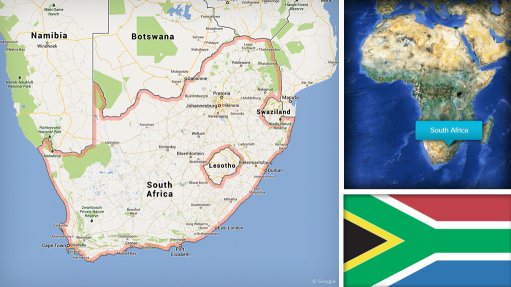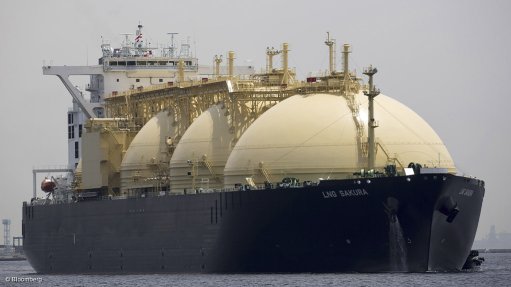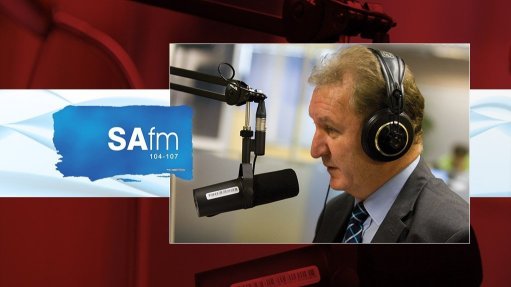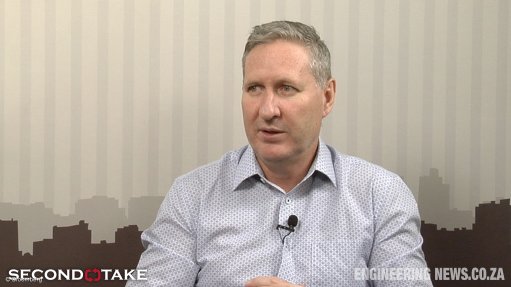Risk assessment pivotal in fire prevention


ASP Fire’s COO Michael van Niekerk discusses the importance of fire prevention and accurate evacuation plans in businesses. Camerawork and Editing: Nicholas Boyd.
PREVENTING FIRES Extinguishing fires before it starts is accomplished by proper analyses
Photo by Duane Daws
To achieve its aim of preventing business destruction caused by fire, Gauteng-based fire detection and suppression equipment solutions provider ASP Fire says that thorough analyses of businesses’ fire prevention points are needed.
“ . . . to mitigate the risks of fire, it is important to complete risk assessments and not have a preconceived idea of risk possibilities in businesses,” says ASP Fire CEO Michael van Niekerk.
He notes that ASP Fire uses a “stop the fire before it starts” approach. One of the most common mistakes made in the process of fire prevention and protection is that business owners do not fully understand the risks and different prevention methods that need to be considered, he adds.
Therefore, ASP Fire provides a solution that includes low-cost processes, resulting in procedures being implemented that businesses can self-manage to mitigate fire risks.
Van Niekerk points out that ASP Fire considers the implementation of different systems, such as fire detection systems, whereby smoke or ignition points can be identified at an early stage and a fire can be extinguished rapidly before developing into an uncontrollable fire.
“We provide a holistic, proactive and preventative fire solution, based on integrated fire risk assessment, training and consulting. Our design, installation and maintenance of fire detection and suppression systems meets and exceeds fire industry standards,” he points out.
Van Niekerk says a fire suppression system can be used for high-risk areas, for example, server rooms or in areas of buildings where fires are more likely to start, such as in kitchens, office desk clusters and connection points for high-voltage electrical equipment. The company also installs automatic fire suppression systems, such as sprinklers, tailored to suit the area and size of the business where risks cannot be mitigated manually, such as large areas.
He comments that extinguishing fires manually is the most cost-effective means of preventing fire damage; however, it is not always effective or feasible beyond a certain point.
“Once a fire starts developing, there are various aspects that come into play. Fires cannot be controlled once they become too large, owing to the presence of heat, toxic fumes and black smoke, which result in poor visibility and limited access to the seat of the fire, affecting the ability to manually extinguish fires,” asserts Van Niekerk.
He says that, apart from protecting businesses from fires, employees also need to be considered when selecting the methods to prevent loss of life. In conducting risk analyses, ASP Fire also includes protection methods for workers such as evacuation plans and emergency assembly points. The company runs system checks and rolls out training for companies to maintain and operate the systems they choose to implement.
Van Niekerk explains that, for buildings consisting of several floors or for large warehouses, owners need to consider employees with disabilities, whether it be those who are visually impaired, hearing impaired or mobility impaired. He adds that, for this reason, evacuation drills and assembly point employee counts need to be practised often.
He highlights that, owing to fires spreading quickly and doubling in size every four to five seconds, selecting the correct methods of identifying a fire and systems for notifying occupants of the fire remains the one of the most important aspects in fire protection and prevention measures.
“It is easy to extinguish a fire if you know exactly where it is and if you can extinguish it before it becomes too large, but it is even more effective to implement a system that stops a fire before it starts,” concludes Van Niekerk.
Comments
Press Office
Announcements
What's On
Subscribe to improve your user experience...
Option 1 (equivalent of R125 a month):
Receive a weekly copy of Creamer Media's Engineering News & Mining Weekly magazine
(print copy for those in South Africa and e-magazine for those outside of South Africa)
Receive daily email newsletters
Access to full search results
Access archive of magazine back copies
Access to Projects in Progress
Access to ONE Research Report of your choice in PDF format
Option 2 (equivalent of R375 a month):
All benefits from Option 1
PLUS
Access to Creamer Media's Research Channel Africa for ALL Research Reports, in PDF format, on various industrial and mining sectors
including Electricity; Water; Energy Transition; Hydrogen; Roads, Rail and Ports; Coal; Gold; Platinum; Battery Metals; etc.
Already a subscriber?
Forgotten your password?
Receive weekly copy of Creamer Media's Engineering News & Mining Weekly magazine (print copy for those in South Africa and e-magazine for those outside of South Africa)
➕
Recieve daily email newsletters
➕
Access to full search results
➕
Access archive of magazine back copies
➕
Access to Projects in Progress
➕
Access to ONE Research Report of your choice in PDF format
RESEARCH CHANNEL AFRICA
R4500 (equivalent of R375 a month)
SUBSCRIBEAll benefits from Option 1
➕
Access to Creamer Media's Research Channel Africa for ALL Research Reports on various industrial and mining sectors, in PDF format, including on:
Electricity
➕
Water
➕
Energy Transition
➕
Hydrogen
➕
Roads, Rail and Ports
➕
Coal
➕
Gold
➕
Platinum
➕
Battery Metals
➕
etc.
Receive all benefits from Option 1 or Option 2 delivered to numerous people at your company
➕
Multiple User names and Passwords for simultaneous log-ins
➕
Intranet integration access to all in your organisation




















